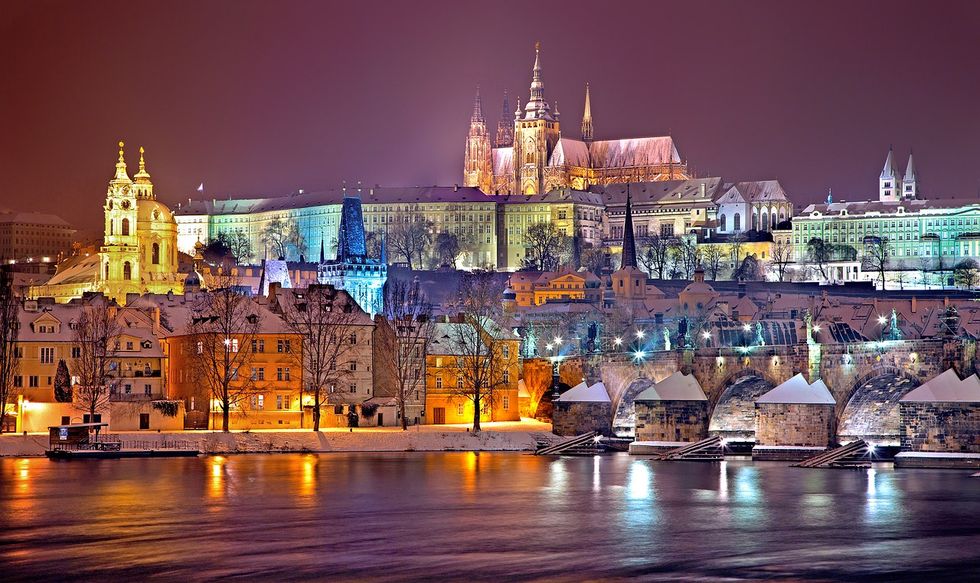Welcome back! It’s been quite a few weeks since I last wrote; life has been getting crazy and busy lately. I’m back and better than ever, though, with so many new topics to write about. In the next few sections, I’ll be talking about the ancient language of Lithuanian, the stigma behind “swear words,” my own cool sociolinguistics experience at a business and marketing competition, Latinx, and more.
Today we will be discussing Lithuanian. The inspiration of this article actually comes from a phone interview I had with a college representative. When asked what I wanted to study at this particular university, I responded by gushing about the sociolinguistics department there and talking about all the work that I’ve done with the subject.
My interviewer also thought language was fascinating, and I was extremely grateful to have someone who related to my hobby/research/interest/passion so much. He told me about how he had Lithuanian roots on his mom’s side, and how he read somewhere that Lithuanian had Sanskrit roots. I remember distinctly that he said it was amazing how “language can paint the history of world cultures,” and I couldn’t agree more with that statement.
After that interview, I decided I wanted to do further research into Lithuanian. Lithuanian is said to be one of the oldest languages of Europe, and many Lithuanians pride themselves in that (side note: yay for language pride!). So how did Lithuanian lexicon and grammar find roots in the ancient Indian language of Sanskrit?
Paul Jules Antoine Meillet was a French linguist who lived from 1866 to 1936. He spent most of his research dedicated to Armenian linguistics; he even went on a research trip into the Caucasus Mountains. However, he was well known for a quote about the Lithuanian language. It goes as follows: “Anyone wishing to hear how Indo-Europeans spoke should come and listen to a Lithuanian peasant.” How interesting.
Modern Lithuanian and Modern Sanskrit both come from the Proto-Indo-European language family, though records show that they branched off relatively early on. Lithuanian became a Proto-Baltic language, while Sanskrit followed the Proto-Indo-Iranian path. How, then, can they be so similar, even in modern times?
I’m taking biology this year, and we learned about the phylogenetic tree. Basically, it is the “Tree of Life,” with branches showing how each organism evolved from its ancestor. It follows the theory that all life on Earth came from one common ancestor; the closer related two organisms are to each other, the later they branch away from each other. What evolves from what depends on environmental pressures -- or anything else that could favor one trait over another as a form of evolutionary advantage. It all has to do with natural selection and survival of the fittest.
Can that same concept be applied to languages?
It may be a stretch, but I really think that languages function in this way as well. When the Proto-Baltic branch and the Proto-Indo-Iranian branch separated from each other, it could have been the matter of one small change in lexicon or grammar. If that’s still too far of a stretch, it could have just been migratory patterns of speakers that eventually led to two distinct (but still pretty similar) languages. Think about it: if two groups of people who originally spoke the same language started migrating away from each other, they would eventually start speaking with different dialects. This would happen until their dialects became distinct enough to be a separate language.
So that brings us back to this: how did Lithuanian and Sanskrit remain so similar? There is evidence that the Lithuanian language is really good at retaining old, archaic terms. Sanskrit is also an extremely old language. The most probable idea is that Sanskrit and Lithuanian happened to retain many of the same characteristics, since they share a “close common ancestor” (to put it into biological terms).
It’s not that far-fetched. Sometimes, organisms that diverge from a common ancestor can still display really similar traits if they end up in environments that resemble each other.
In the next section, we’ll be going into more detail about the similarities of these two languages. Stay tuned!



 StableDiffusion
StableDiffusion
 StableDiffusion
StableDiffusion
 StableDiffusion
StableDiffusion

 women sitting on rock near body of waterPhoto by
women sitting on rock near body of waterPhoto by 
 Photo by
Photo by  Photo by
Photo by  Photo by
Photo by  Photo by
Photo by  Photo by
Photo by  Photo by
Photo by  Photo by
Photo by  Photo by
Photo by  Photo by
Photo by  Photo by
Photo by 

















